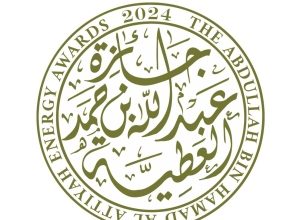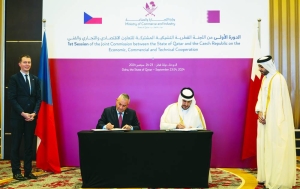Kazakhstan’s Foreign Trade Exceeds $55 Billion in Five Months of 2024

ASTANA – Kazakhstan’s foreign trade surpassed $55 billion in the first five months of 2024, according to the report published by the Prime Minister’s press service on July 26.

Photo credit: primeminister.kz
Priority markets for Kazakh exports
Traditionally, the top three trading partners include China, Russia, and the European Union (EU). In January-May, exports from Kazakhstan increased by 1.8% to $32.5 billion. Non-oil goods and services exports exceeded $13 billion, with $10.5 billion coming from the export of finished products. The growth in exports was influenced by high international demand for non-ferrous metals and sunflower oil. Kazakhstan’s services sector also showed positive export trends.
The government has also been creating favorable conditions for new sales markets and strengthening cooperation with domestic producers. It is also working on expanding export markets by developing transport corridors, with a special emphasis on cooperation with China.
China’s share in Kazakhstan’s total trade turnover reached 20%, totaling $11.4 billion in the first five months of 2024, a 6.6% increase from the previous year. Exports to China increased by 19.1% to $5.7 billion.
In the medium term, Kazakhstan aims to increase exports of finished products by 2.5 times, targeting $12 billion. Regional cooperation with Chinese provinces has shown positive results: trade with the Xinjiang Uyghur Autonomous Region grew 50%, including a 35.3% increase in exports; exports to Sichuan Province rose by nearly 30%; exports to Jiangsu Province increased more than tenfold.
Kazakhstan’s entry into new markets was facilitated by comprehensive support measures, stimulating production and adopting new technologies. In the first half of 2024, agreements with Iran on a free trade zone for goods and with Singapore on trade in services were ratified. Negotiations with Indonesia, Mongolia, and the United Arab Emirates (UAE) are in their final stages, potentially increasing exports by over $1.9 billion.
On the instructions of President Kassym-Jomart Tokayev, an export promotion institute was established based on the Kazakh Export insurance company. The law on the Export Credit Agency, adopted on Jan. 23, supports a range of insurance and financial measures. In the first half of 2024, the agency supported 30 exporters.
Export Acceleration Program
The Export Acceleration 2024 program continues, selecting 120 enterprises in mechanical engineering, chemical, light and food industries and services, including IT. Eight target markets are identified: Russia, Uzbekistan, the Kyrgyz Republic, the UAE, Saudi Arabia, Qatar, Germany, and China.
The program aims to increase the number of active exporters by 100 annually, reaching 1,000 by 2025. Between 2020 and 2024, 557 enterprises participated in the program, resulting in 44 export contracts worth $312 million.
Service support for exporters
Kazakh-made goods are gaining recognition through international exhibitions and trade missions. Since the beginning of the year, five trade and economic missions in the UAE, China, and Afghanistan resulted in export contracts worth nearly $150 million. Events were attended by 135 Kazakh exporting companies and around 700 potential foreign companies.
The Qazaq Trade House was launched in Dubai, showcasing Kazakh products such as meat, oil, confectionery, flour, juices, apples, and other goods. The Qaz Steppe Innovation Hub coworking space also began operations, presenting advanced startup projects from Kazakhstan.
In March, Kazakhstan and China signed an agreement to create the Central Asia — Jiangsu multifunctional center. On March 26, the second forum of exporters in Astana included a conference on trade and economic cooperation between China and Kazakhstan, during which B2B negotiations led to contracts for goods worth $164.5 million.
Operational headquarters for non-oil exports
In October 2023, Kazakhstan launched the operational headquarters for the development of non-oil exports to promptly respond to business requests. An extended meeting on July 12 resolved transport and logistics issues related to shipment volumes and access. Also, an agreement was reached with China to create a working group to expedite the passage of goods on the Kazakh-Chinese border, involving transport, customs, and border agencies from both countries.





